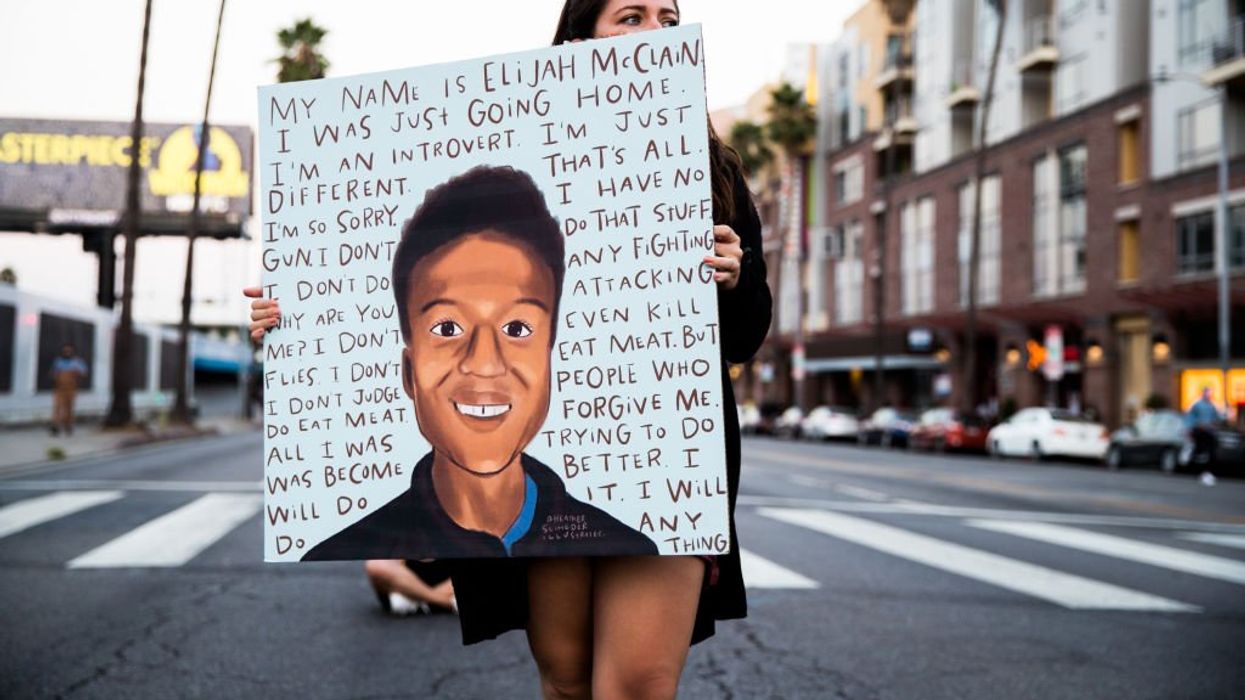
Photo by Rich Fury/Getty Images

Two paramedics were convicted of criminally negligent homicide in the death of Elijah McClain on Friday, bringing an end to the trials of five different people who were charged in connection with McClain's controversial 2019 death.
McClain's death became a rallying cry for racial justice advocates in 2019 after he was confronted by cops as he was walking home from a convenience store. Officers approached McClain, who was 23, after receiving a call from an anonymous Aurora citizen about a person in the area who was wearing a ski mask and who looked "sketchy." McClain was unarmed at the time, but became involved in an altercation with the three officers that turned increasingly violent, leading officers to handcuff McClain and hold him face down on the ground.
At some point during the encounter, two paramedics who had arrived at the scene, Jeremy Cooper and Peter Cichuniec, administered ketamine to McClain. Ketamine is sometimes used as a sedative for individuals who are agitated, but the dose administered by the paramedics reportedly exceeded the appropriate amount for an individual of his weight. McClain went into cardiac arrest at the scene and was declared brain dead three days later. He was ultimately removed from life support and died several days after the incident.
McClain's case sparked massive protests in Colorado during the summer of 2020, in connection with other cases that became rallying cries for the Black Lives Matter movement. Of the three police officers involved in the altercation, one of them (Randy Roedema) was convicted of criminally negligent homicide and assault, while the other two were acquitted. Cooper and Cichuniec were the final two defendants to go to trial in this case.
Cooper and Cichuniec defended their actions at trial. Cooper said he estimated McClain's weight to be around 200 pounds, which would have made the dosage administered to him appropriate, when in fact McClain's weight was around 140 pounds. Cichuniec, who took the stand in his defense, said he ordered the maximum dosage because McClain was in such an agitated state. "In this case, with excited delirium, it could kill you. If we don't work fast, he could die. ... Time is of the essence. I went off training and went up to 500 (milligrams)."
The jury ultimately rejected these explanations and convicted both paramedics. In a statement released by McClain's mother prior to the verdict, she said, "They can not blame their job training for their indifference to evil or their participation in an evil action. That is completely on them. May all of their souls rot in hell when their time comes."